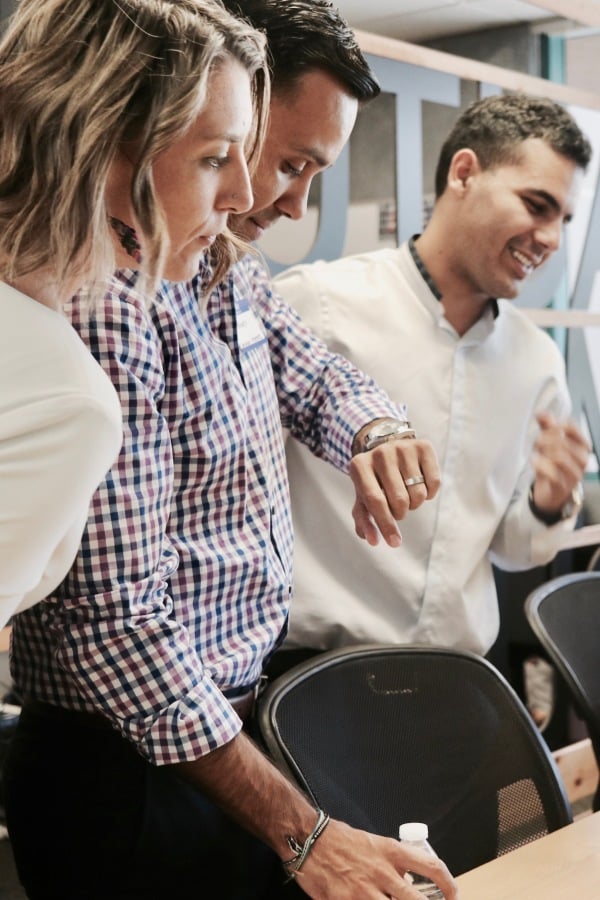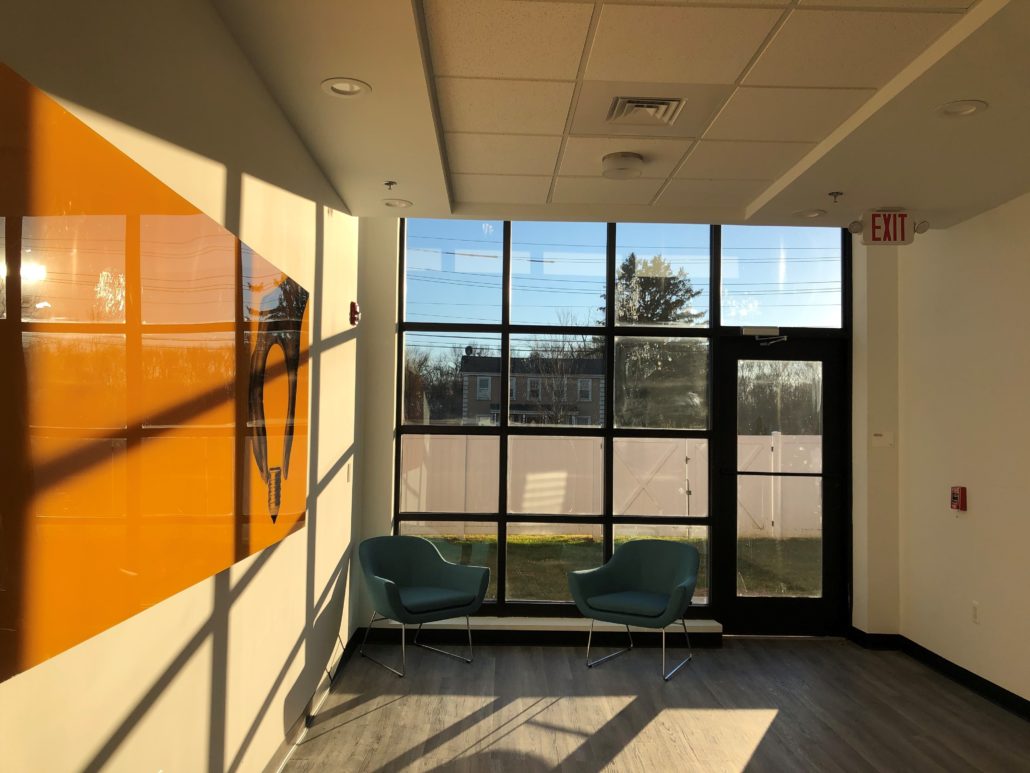Educate Yourself about Addiction
When family members or loved ones struggle with drug addiction, it affects everyone they know. Their drug addiction can have psychological, emotional, financial, and environmental effects on the individuals they care about the most.
Follow the advice below to cope with a drug-addicted family member or loved one. These steps will serve as a guide and help for family members of drug addicts.
1. Provide help for family members of drug addicts by searching online for information about your loved one’s form of addiction
- Prioritize reading information from websites with medical or scientific information or trustworthy websites such as government or university-sponsored information. There is information on the web, but not everything you read about drug addiction is accurate or realistic.
- Learning about your loved one’s drug and addiction characteristics can help you understand what to expect from alcoholics and drug addicts and how to best address the situation.
2. Provide help for family members of drug addicts by looking out for support groups such as Al-Anon, Ala-Teen, and Nar-Anon, which offer 12 Step programs for the families and friends of alcoholics and drug addicts
- They provide support for dealing with the addict and sharing with people in similar situations will quickly help you understand the realities of addiction and recovery. These substance abuse treatment programs will also help you to recover from the emotional effects of a relationship with an addict.


Get Your Life Back
Find Hope & Recovery. Get Safe Comfortable Detox, Addiction Rehab & Mental Health Dual Diagnosis High-Quality Care at the We Level Up Treatment Centers Network.
Hotline (877) 378-4154Seek Professional and Specialist Help
1. Provide help for family members of drug addicts by looking into detox rehabilitation centers. Ask a health professional or search online for health facilities and inpatient care centers that can treat individuals or willing drug addicts
- Many drug addicts and alcoholics have other conditions – such as an undiagnosed mental health issue that adds up to their addiction, so finding a detox center that can address all aspects of health for your loved one can make the difference between temporary and permanent rehabilitation and recovery.
2. Provide help for family members of drug addicts by searching for local anonymous support groups
- Aside from detoxification and rehabilitation, your loved one may need to attend individual and group therapy.
- Many organizations and groups exist with regular (usually daily) meetings to promote alcohol and drug-free living and a support network of people who have conquered their drug or alcohol.
- These groups usually offer anonymous support and follow the 12-Step program initially developed for Alcoholics Anonymous (AA).
3. Provide help for family members of drug addicts by speaking with a professional counselor or therapist
- Besides learning about resources for your addicted loved one, it can be beneficial for you and other family members to speak with a family counselor or therapist.
- Living with a drug-addicted loved one can cause significant stress on other members of the family. Family therapy can be of great help to stressed or confused parents, children, or partners. Many rehabs have counselors available to help parents deal with drug-addicted children.
4. Provide help for family members of drug addicts by encouraging your loved one to seek help
- Do not ignore the drug use of your loved one. Instead, accept the addiction and the strain it is putting on the family or relationship. Encourage or respectfully ask your loved one to attend a therapy session, anonymous support group session, or detoxification facility.
Get Help. Get Better. Get Your Life Back.
Searching for Accredited Drug & Alcohol Rehab Centers Near You? Or Mental Health Support?
Even if you have failed previously, relapsed, or are in a difficult crisis, we stand ready to support you. Our trusted behavioral health specialists will not give up on you. Call us when you feel ready or want someone to speak to about therapy alternatives to change your life. Even if we cannot assist you, we will lead you wherever you can get support. There is no obligation. Call our hotline today.
FREE Addiction Hotline – Call 24/7Stage an Intervention
1. Seek help from a professional
- Interventions should be led and planned by a professional for a better chance of success. A botched intervention risks your loved one becoming even more committed to their drug addiction.
2. Plan the intervention
- Decide who should be involved, who will lead the intervention, how you will involve the addicted person, and what activities and steps you will do during the intervention. Many interventions are led by a trained alcohol and drug specialist or family therapist and have friends, family members, church members or teachers, and other influential individuals from the addict’s life in attendance. Consider all these options while planning an intervention suited to your loved one’s situation.
3. Confront your loved one about his or her substance abuse
- Some interventions involve a series of personal requests from loved ones to ask the addict to enter a detox facility and rehab, while others involve reading letters to the addict aloud or sharing personal feelings about the hardship of seeing a loved one struggle with addiction. Be ready for what you will do depending on your loved one’s response.
Persevere But Set Boundaries
1. Provide emotional support but do not enable the drug addiction
- Do not provide money to your loved ones to allow them to buy drugs or alcohol, but remind them that you are willing and ready to help.
2. Develop effective communication skills
- Many relationships can fall into communication ruts that make it harder for both parties to express themselves effectively.
- Consider speaking with a counselor or reading a self-help book about the appropriate way to address a loved one who struggles with addiction.
- Learning how to communicate better can enable you to focus on conversations that make progress toward seeking help instead of spiraling into negativity, threats, blaming, or shouting matches.
3. Offer to attend therapy with your addicted loved one
- If you suspect that your loved one is unable or unwilling to attend support groups or therapy alone, make it clear that you are willing to offer support by attending sessions or detox treatment with him or her.
4. Know your limits and don’t tolerate unacceptable behavior
- Be prepared to maintain personal safety by cutting ties if the addict’s behavior warrants it. Behavior that may lead you to consider whether you need to separate yourself and any other family members you care for from the situation include:
- If your family member or loved one is abusive or violent toward you or other family members.
- Endangering the family with risky behavior (such as conducting drug deals on the property or using drugs near children)
- Putting the family’s financial stability in jeopardy (by selling items from the home to pay for the habit, or draining the bank account)
- If necessary, consider options such as reporting the addict’s illegal behavior to civil authorities, admitting a person to an inpatient substance abuse program, relocating without announcing your new location, or demanding the addict leave the house and not return until sober.
First-class Facilities & Amenities
World-class High-Quality Addiction & Mental Health Rehabilitation Treatment
Rehab Centers TourRenowned Addiction Centers. Serene Private Facilities. Inpatient rehab programs vary.
Addiction Helpline (877) 378-4154Proven recovery success experience, backed by a Team w/ History of:
15+
Years of Unified Experience
100s
5-Star Reviews Across Our Centers
10K
Recovery Success Stories Across Our Network
- Low Patient to Therapist Ratio
- Onsite Medical Detox Center
- Comprehensive Dual-Diagnosis Treatment
- Complimentary Family & Alumni Programs
- Coaching, Recovery & Personal Development Events
Go to Family Therapy Sessions

Family therapy is a set of therapeutic approaches that attempt to use the family’s resources and strengths to help both the person suffering from addiction and the family members live without alcohol and drugs. It also seeks to lessen the damage of drug and alcohol addiction on both the substance abuser and his or her family.
Additional concerns may also be addressed in treatment, such as parenting skills, depression, abuse, family conflict, and unemployment.
In addiction substance abuse treatment, family therapy usually takes the form of education. Allowing family members to ask questions and start a dialogue can in itself be mending.
Additionally, therapeutic interventions may include:
- Discussing family roles
- Learning what helps and what is harmful
- Identifying ways to improve communication and rebuild trust
- Identifying ways to interact that respect the needs of everyone involved
Below are specific types of family-based treatments shown to be effective in treating adolescent substance abuse.
Brief Strategic Family Therapy (BSFT)
- BSFT is based on a family systems approach to treatment, in which one member’s problem behaviors are seen to stem from unhealthy family interactions. The therapist and counselor establish a relationship with each family member, observe how the members behave with one another and assist the family in changing negative interaction patterns.
Family Behavior Therapy (FBT)
- FBT, which has demonstrated positive results, combines behavioral contracting with contingency management to address not only substance abuse but other behavioral problems as well. The individual and at least one parent participate in treatment planning and choose specific interventions from a menu of evidence-based treatment options. Therapists encourage family members to use behavioral strategies taught in sessions and apply their new skills to improve the home environment.
Functional Family Therapy (FFT)
- FFT combines a family systems view of family functioning (which asserts that unhealthy family interactions underlie problem behaviors) with behavioral techniques to improve communication, problem-solving, conflict resolution, and parenting skills.
Principal treatment strategies include:
- Engaging families in the treatment process and enhancing their motivation for change
- Modifying family members’ behavior using contingency management (CM) techniques, communication and problem-solving, behavioral contracts, and other methods
Benefits of Family Therapy for Addiction
Some benefits gained by people in treatment and their families are:
- A better understanding of the nature of addiction and how it affects behavior: This is accomplished through education. Just as the person has been assessed, the family has an opportunity for self-assessment and insight from a therapist.
- Becoming aware of family dynamics: Maladaptive family patterns will contribute to continued substance use. Everyone in the system should be treated to obtain the most positive outcome.
- Improving communication: In a system where there may have been no communication or limited emotional involvement, improved communication is essential and will require an investment by those interested in the most successful recovery outcomes.
- Regaining trust: Dishonesty and substance abuse sometimes go hand in hand. Family members may not want to open their hearts (or their wallets) to help a loved one who has betrayed their trust. Improved communication, honest interaction, and witnessing positive changes can help mend this breach.
- Sharing feelings: During active addiction, bridges can be burned. Family members may be angry but unable to express it, they may fear relapse or they may be excited at the possibility of reconciliation. It takes time to learn how to recognize, balance, and express these feelings.
- Setting boundaries: This applies to everyone involved. Clarifying boundaries is not easy. But it is a necessary step toward healthy recovery for the family. This may include detaching from any family member who is in active addiction.
- Learning self-care: In addiction treatment, the focus is on the person with the addiction. During family therapy, a parent or spouse may learn that they need help, too. They may be directed to try Al-Anon, Nar-Anon, or other mutual help groups in addition to finding an individual therapist.
World-class, Accredited, 5-Star Reviewed, Effective Addiction & Mental Health Programs. Complete Behavioral Health Inpatient Rehab, Detox plus Co-occuring Disorders Therapy.
CALL (877) 378-4154End the Addiction Pain. End the Emotional Rollercoaster. Get Your Life Back. Start Drug, Alcohol & Dual Diagnosis Mental Health Treatment Now. Get Free No-obligation Guidance by Substance Abuse Specialists Who Understand Addiction & Mental Health Recovery & Know How to Help.
Look Into Professional Treatment and Drug Rehab Services for Them
Once your family member is committed to recovery, it’s time to explore their treatment choices. While alcohol and drug addiction treatment can vary according to the specific drug, a successful program often includes different elements, such as:
Detoxification. Usually, the first step is to purge your body of drugs and manage withdrawal symptoms.
Behavioral therapy. The individual, group, and/or family therapy can help you identify the root causes of your drug use, repair your relationships, and learn healthier coping skills.
Medication-assisted treatment (MAT) may be used to manage withdrawal symptoms, prevent relapse, or treat any co-occurring mental health condition such as depression or anxiety.
Long-term follow-up can help to prevent relapse and maintain sobriety. This may include attending regular in-person support groups or online meetings to help keep your recovery on track.
Look for a trusted treatment facility that provides evidence-based programs aligned with your loved one’s specific circumstances. For example, do you believe your loved one might have other co-occurring mental health conditions such as anxiety or depression? Seek a program that has the capability to address mental health disorders as well as alcohol and drug addiction, such as a dual diagnosis treatment program.
Ultimately, when you seek help for family members of drug addicts, as tough as it may be, you have to let go of fear. Loving an addict frequently means that you’re tormented with persistent fear, and that can lead you to feel hopeless or depressed.
If you or someone you care about is struggling with alcohol or drug addiction, please reach out to a drug abuse counselor today to explore your treatment options. Call us today here at We Level Up New Jersey to get into proper treatment. Above all, recovering from a substance use disorder does not need to be overwhelming or burdensome.

Experience Transformative Recovery at the We Level Up Treatment Center.
See our authentic success stories. Get inspired. Get the help you deserve.



Start a New Life
Begin with a free call to an addiction & behavioral health treatment advisor. Learn more about our dual-diagnosis programs. The We Level Up treatment center network delivers various recovery programs at each treatment facility. Call to learn more.
- Personalized Care
- Caring Accountable Staff
- World-class Amenities
- Licensed & Accredited
- Renowned w/ 5-Star Reviews
We’ll Call You
Sources:
[1] NIAAA – https://www.drugabuse.gov/publications/principles-drug-addiction-treatment-research-based-guide-third-edition/frequently-asked-questions/where-can-family-members-go-information-treatment
[2] NIDA – https://www.drugabuse.gov/publications/principles-adolescent-substance-use-disorder-treatment-research-based-guide/evidence-based-approaches-to-treating-adolescent-substance-use-disorders/family-based-approaches
[3] NIDA – https://www.drugabuse.gov/publications/principles-drug-addiction-treatment-research-based-guide-third-edition/drug-addiction-treatment-in-united-states/types-treatment-programs